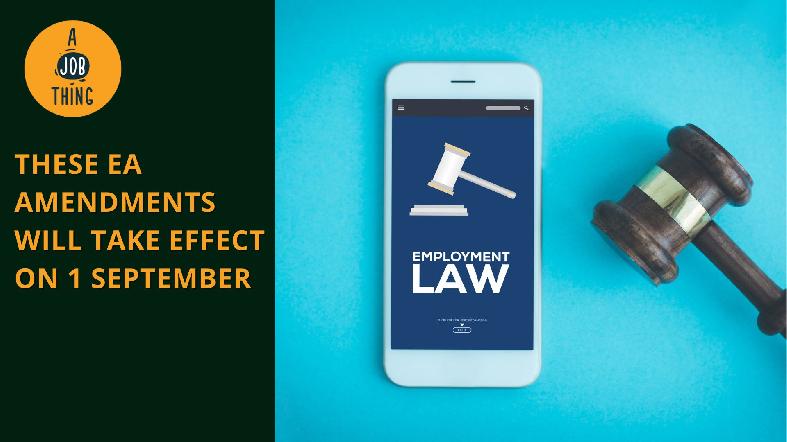
These EA Amendments Will Take Effect on 1 September
Create Job Description Using AI
Write appealing job descriptions for any job opening to attract the most qualifield and suitable candidates. FOR FREE.
try now
Big changes will come for the Employment Act 1955 (EA), including extended maternity and paternity leaves, improved anti-discrimination protection, a legal right for workers to request flexible work schedules, and many other improvements.
Employers must catch up quickly and start revising policies and procedures to ensure compliance with the changes that Malaysia will soon implement.
The Employment (Amendment) Act 2022
The EA was recently amended to offer employees more protection and advantages.
The EA now applies to workers who:
-
Make less than RM2000 per month.
-
Work as manual labourers or supervisors of manual labourers regardless of income.
-
Fit into particular groups, such as those working on sea vessels, domestic workers, and others.
However, the Human Resources Ministry said the application of the amendments would cover more, if not all, workers in addition to those who meet criteria (a), (b), and (c).
The ministry is expected to issue a Minister's Order to clarify the covered workers' scope and remove any confusion. This Order's anticipated publication date is still to be determined.
When will the amendments take effect?
The amendments will take effect on 1 September 2022.
9 major amendments of the EA
-
Flexible working arrangement: Employees may request a flexible working arrangement from their employer in writing to change the hours, days, or location of their employment. Employers must respond within 60 days of receiving the request with their permission or disapproval.
-
Foreign workers: Employers must first receive permission from the Director-General of Labour before recruiting a foreign worker. If they don't, they risk being fined, imprisoned or both.
-
Paid maternity leave: 98 days of paid maternity leave, up from 60.
-
Paternity leave: 7 days of leave for married male workers, provided that other requirements are met.
-
Presumption of employment: Gig workers are presumed to be employees without a written contract of service unless proven otherwise.
-
Protection from discrimination: The Director-General of Labour has the authority to look into and provide rulings about issues involving discrimination between employers and employees. Employers who disobey any such orders may be fined.
-
Restriction on the termination of pregnant employees: Pregnant employees or those with pregnancy-related illnesses are restricted from being terminated unless there are other grounds for dismissing them, such as redundancy or misconduct.
-
Sexual harassment awareness notice: Employers must post a notice raising awareness on sexual harassment in the workplace to educate employees.
-
Working hours: the weekly maximum has been lowered from 48 to 45 hours.
Although the precise scope of workers who will gain from the amendments is still unknown, it is believed that the EA will cover a larger group of workers once a Minister's Order is published.
Employers should, at the absolute least, start assessing the relevant contracts, policies, and procedures immediately for those workers who already fall under the purview of the EA (meeting criteria (a), (b), or (c)) to get ready for and ensure compliance once the amendments take effect. Employers must prepare to perform a similar exercise on all other workers.





